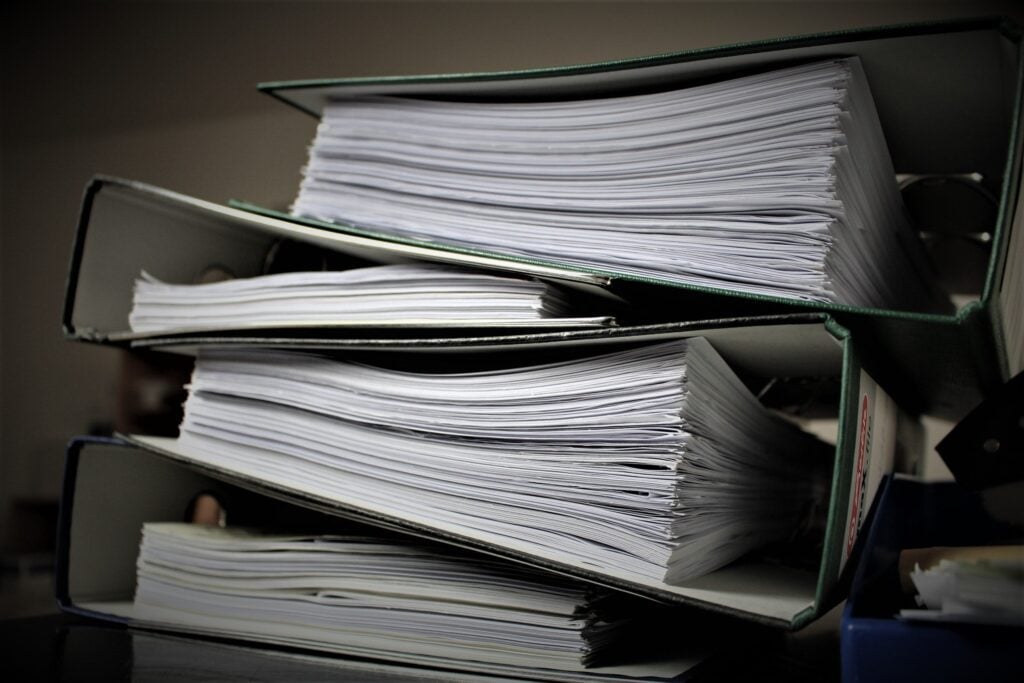International Trade – Documentation Requirements
How to Start an International Trading Business – Part 3
In our international trade series of blog posts, we have mentioned several times that while international trade transactions can be completed by virtually anyone, successful international trading requires a great deal of documentation for sellers and buyers to complete a transaction. In commercial transactions that take place within the borders of a country, the purchase is evidenced by a purchase order, an invoice, a payment, and a receipt. Not so in international trading.
This post will examine the documents required in almost every transaction that takes place when the seller and the buyer are in different countries and there is a physical exchange of goods. You can replace the words seller and buyer with exporter and importer. Many documents are required by government regulators while others are required by bankers, insurers, logistics companies, and in some instances, by all parties to the transaction.
Contents
Common International Trade Documents
Below is a description of the most common documents used in international trade:
- Commercial Invoice – Issued by the seller provides details of the transaction. There is nothing unusual here. The issuance of invoices is standard practice in any commercial transaction.
- Packing List – Includes list of contents, packaging, weights, and dimensions. This is extremely important, especially for cargoes that are not shipped in bulk or in containers.
- Bill of Lading – Issued by the carrier acknowledging receipt of the goods. Although bills of lading are most often associated with carriage by sea, these documents are also issued for carriage by air, truck, or railroad.
- Certificate of Origin – Certifies the country of origin. Often referred to as simply “CO,” in addition to identifying the country of origin, a CO will describe product specifications and the identities of the exporter and importer. The CO is used for customs purposes, especially when there are tariffs or duties to be paid to the importing country.
- Certificate of Conformity – Certifies (usually by the manufacturer) that the goods comply with the standards and regulations of the importing country. The CoC can be requested by the buyer or by the importing country as part of the customs process.
- Import License – Authorizes the importation of specific goods when required. Import licenses are issued by the government of the importing country. In most cases, they are not required but when they are, the trader must ensure that one has been issued.
- Customs Declaration Form – Provides details of imported goods such as value. Most countries require that visitors submit customs declaration forms upon arrival. In addition, most countries require a customs declaration form to accompany a package that has been mailed from a foreign country. Lastly, a customs declaration form must accompany an international cargo that crosses from one border into another.
- Insurance Certificate – Provides evidence of insurance. This document is used to assure all of the parties to an international trade that insurance is in place to cover the loss of or damage to the cargo while in transit.
- Letter of Credit – Financial document issued by a bank on behalf of a buyer, guaranteeing payment to the seller. Often, counterparties in many trade transactions are unknown or relatively unknown to each other. By providing the seller of a product or cargo with a letter of credit issued by a well-known international bank makes the seller comfortable that he will be paid the correct amount and on time.
- Phytosanitary Certificate – Required for importation of plants, plant products and certain agricultural products certifying that goods are free of pests and diseases. Different countries have different phytosanitary requirements based on their unique ecosystems and agricultural concerns. The Phytosanitary Certificate serves as evidence that the exported goods comply with these specific requirements.
- Proforma Invoice – Initial invoice provided by the seller before the shipment outlining the terms of sale and the description of goods.
A Word About Customs
Customs administration, often referred to as Customs, refers to the rules, regulations and procedures that govern the movement of goods and services across national borders. Customs processes are essential for facilitating smooth and legal trade between countries. These processes are governed by the documentation requirements provided above as well as the rules and regulation outlined in International Trade – Regulatory Issues. Customs clearance refers to the inspection, verification of documentation and payment of any applicable duties and taxes. Customs agencies have the authority to impose penalties for non-compliance with customs regulations and, indeed, prevent delivery of goods if necessary. Many countries now use e-Customs to streamline the process, reduce paperwork and approve efficiency in customs clearance.
Large, multinational corporations that engage in international trade transactions on a daily basis have staff departments that take care of the rules, regulations, documentation and other aspects involved in trade between exporters and importers. For traders that are new to selling overseas or when overseas trade is only a small part of their sales volume, we recommend using a customs broker to navigate the complexities of international trade. These are professionals who have expertise in customs regulations and documentation and will help ensure that shipments comply with all requirements.
Up next: International Trading Risks

